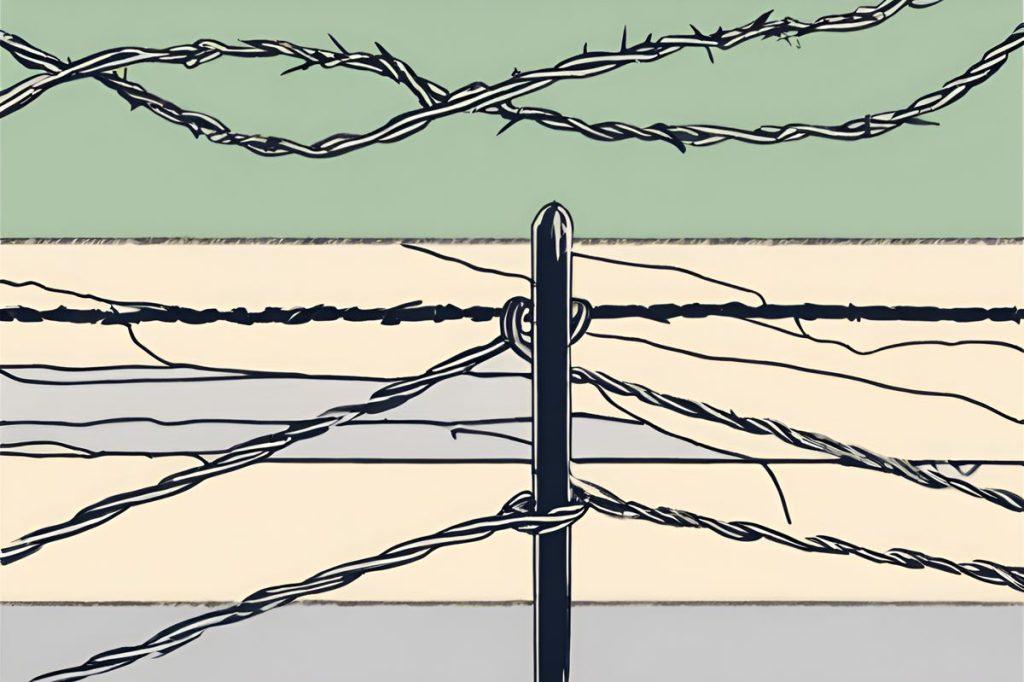The Cyprus sovereignty dispute has intensified as Turkish President Erdogan stirs controversy with claims of potential Turkish control over the island. The Cypriot government condemns these assertions, emphasizing their commitment to a peaceful resolution through a bizonal, bicommunal federation with political equality.
What are the recent developments in the Cyprus sovereignty dispute?
The Cyprus sovereignty dispute has escalated recently due to Turkish President Erdogan’s provocative claims about the 1974 invasion and the notion of Turkish control over the island. These assertions have been condemned by the Cypriot government as unacceptable, undermining UN resolutions and international law. Amidst this tension, Cyprus remains committed to a peaceful resolution through a bizonal, bicommunal federation with political equality.
Erdogan’s Provocative Claims
Turkish President Recep Tayyip Erdogan recently ignited controversy with his remarks about the island of Cyprus, which has been a point of conflict between Greece and Turkey for decades. During an official event, Erdogan made bold assertions regarding the 1974 Turkish invasion of Cyprus, suggesting that had Turkish forces advanced further south, the entire island could potentially be under Turkish control today. These comments have drawn sharp criticism from the Cypriot government.
Cypriot government spokesman Konstantinos Letymbiotis expressed grave concern over Erdogan’s statements, labeling them “unacceptable” and “provocative.” Letymbiotis emphasized that such declarations undermine the significance of modern, European values and directly contravene United Nations Security Council resolutions aimed at mediating the Cyprus issue.
International Law and the Cyprus Dispute
The situation in Cyprus remains a sensitive geopolitical matter. The northeastern portion of the island has been occupied by Turkish forces since the invasion, leading to the establishment of the self-declared Turkish Republic of Northern Cyprus, recognized only by Turkey. The rest of the international community considers it to be part of the Republic of Cyprus, an EU member state.
Erdogan’s remarks coincide with diplomatic efforts to find a lasting solution to the division of the island. However, Letymbiotis called Erdogan’s timing into question, pointing out the lack of respect for international law, past negotiations, and the efforts of the UN Secretary-General’s personal envoy, who was in Cyprus recently to facilitate talks.
Cyprus’s Commitment to Peaceful Resolution
Despite the incendiary nature of Erdogan’s comments, the Republic of Cyprus reaffirms its dedication to resolving the long-standing issue. Letymbiotis stated that Cyprus is unwavering in its pursuit of a peaceful settlement based on a bizonal, bicommunal federation with political equality, consistent with UN resolutions.
The Cypriot government remains hopeful that the UN envoy’s presence on the island will mark the beginning of a renewed effort to advance negotiations. Letymbiotis insisted that Cyprus would resist any attempts to derail this objective and emphasized that resolution will not be achieved through public proclamations but through a commitment to the agreed framework of negotiations.
The Human Cost and Historical Context
Amid the political rhetoric, the human impact of the conflict must not be forgotten. During the conflict in 1974, hundreds of Turkish soldiers lost their lives, and many Cypriots experienced displacement and loss. Erdogan also alluded to the survival of Turkish Cypriots, which he attributed to Turkey’s military intervention, claiming it prevented genocide.
While the history of Cyprus is marked by strife and division, the contemporary narrative is geared towards reconciliation and cooperation. The Cypriot government’s stance is a testament to this shift, seeking a harmonious future that acknowledges the complexities of the past while forging a path for a united Cyprus.
What are the recent developments in the Cyprus sovereignty dispute?
The Cyprus sovereignty dispute has escalated recently due to Turkish President Erdogan’s provocative claims about the 1974 invasion and the notion of Turkish control over the island. These assertions have been condemned by the Cypriot government as unacceptable, undermining UN resolutions and international law. Amidst this tension, Cyprus remains committed to a peaceful resolution through a bizonal, bicommunal federation with political equality.
What are Erdogan’s provocative claims regarding Cyprus?
Turkish President Recep Tayyip Erdogan recently made controversial remarks suggesting that Turkish forces could have potentially taken control of the entire island of Cyprus if they had advanced further south during the 1974 invasion. These statements have been criticized by the Cypriot government for being provocative and disregarding international law and past negotiations.
How does international law play a role in the Cyprus dispute?
The Cyprus conflict involves complex legal implications, with Turkish forces occupying the northeastern portion of the island following the 1974 invasion. While Turkey recognizes the self-declared Turkish Republic of Northern Cyprus in that region, the rest of the international community considers it part of the Republic of Cyprus. Efforts to find a solution to this division are ongoing, with a focus on respecting UN resolutions and established diplomatic processes.
How is Cyprus approaching the resolution of the sovereignty dispute?
Despite the tensions caused by Erdogan’s comments, Cyprus remains steadfast in its commitment to a peaceful resolution. The Cypriot government advocates for a bizonal, bicommunal federation with political equality, aligning with UN resolutions aimed at resolving the conflict. Cyprus is hopeful that the recent presence of the UN envoy on the island will kickstart renewed negotiations towards a lasting solution that respects the agreed framework.

